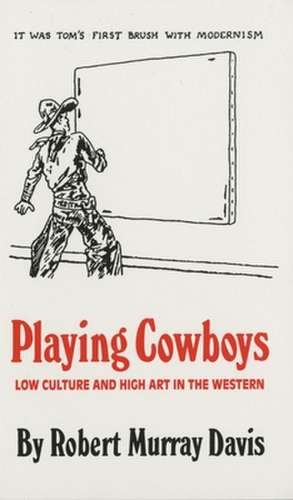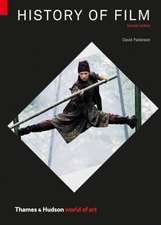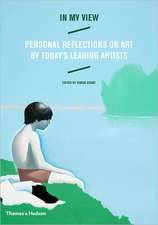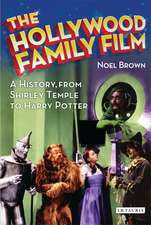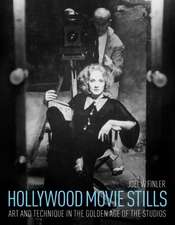Playing Cowboys: Low Culture and High Art in the Western
Autor Robert Murray Davisen Limba Engleză Paperback – 28 feb 1994
In "Playing Cowboys, "Robert Murray Davis examines the Western hero-a principal image of American manhood since publication of "The Virginian-as "portrayed by a variety of post-World War II novelists and filmmakers. Innovative artists have used the Western to discuss issues of ethics and aesthetics, but its greatest impact may have been on popular cultural values. Davis shows that the Western is not primarily about escape or violence, but, at its best, is about development. The would-be hero adopts the existing role only to find it inadequate, and, forced to "reimagine" himself, he defines the Western hero anew. At the core of this process is strength-not power over others, but courage to go beyond the established boundaries. Although women do appear in the Western (often as proponents of "civilization"), it is fundamentally a man's world, offering an important view of male identity.
Focusing on "The Virginian, "chapter 1 explores the origin of the Western hero and the source of the genre's major plots and issues. Chapter 2 evaluates history, myth, and the relative reality of the "two "in the works of Oakley Hall. Citing the novels of Richard Brautigan, E.L. Doctorow, John Hawkes, and Michael Ondaatje, chapter 3 compares the Western and the gothic novel, focusing on the concept of space. These works portray the West as a wasteland devoid of any vitality, but chapter 4 takes up science fiction Westerns (including works by John Jakes, John Boyd, and Robert Sheckley) that use the Western frontier to ironic and liberating effect. Chapter 5, on the motion picture "Blazing Saddles" and the postmodern Western novels of Ishmael Reed and Alvin Greenberg, examines the role playing by which identity is created. And in his Preface, Introduction, and Epilogue, Davis frames these discussions with personal observations on the West and its relation to the American masculine mystique.
For those interested in Western movies or novels, popular culture, gender studies, or literary criticism, "Playing Cowboys" is a unique and indispensable guide to the territory from here to the sunset.
Preț: 169.64 lei
Nou
32.46€ • 34.71$ • 27.07£
Carte disponibilă
Livrare economică 28 martie-11 aprilie
Specificații
ISBN-10: 0806126272
Pagini: 192
Dimensiuni: 115 x 183 x 15 mm
Greutate: 0.18 kg
Ediția:Revised
Editura: University of Oklahoma Press
